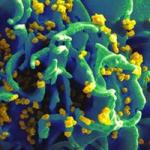
Parizad Torabi-Parizi, M.D.
Investigator
Laboratory of Basic and Translational Immunology
NHLBI
Research Topics
Dr. Torabi-Parizi’s program focuses on understanding innate immune cell and effector T cell behavior in peripheral tissues, mechanisms regulating such behavior, and possible interventions that might modulate these responses to improve host outcomes in the context of critical illness, with a particular emphasis on checkpoint pathways. Her current work includes establishing rodent models of sepsis and acute lung injury that allow for the evaluation of molecular mechanisms of host injury and the introduction of therapeutic interventions to alter outcomes.
Biography
Dr. Parizad Torabi-Parizi earned her undergraduate degree in Chemistry and degree in Medicine from Emory University. She completed her internship and residency training in Internal Medicine at the Johns Hopkins Hospital Osler Training Program. She then completed her fellowship training in Critical Care Medicine at the NIH and is now a Tenure-Track Investigator in the NHLBI.
Selected Publications
- Kanth SM, Gairhe S, Torabi-Parizi P. The Role of Semaphorins and Their Receptors in Innate Immune Responses and Clinical Diseases of Acute Inflammation. Front Immunol. 2021;12:672441.
- Busch LM, Sun J, Cui X, Eichacker PQ, Torabi-Parizi P. Checkpoint inhibitor therapy in preclinical sepsis models: a systematic review and meta-analysis. Intensive Care Med Exp. 2020;8(1):7.
- Busch LM, Sun J, Eichacker PQ, Torabi-Parizi P. Inhibitory Immune Checkpoint Molecule Expression in Clinical Sepsis Studies: A Systematic Review. Crit Care Med. 2020;48(9):1365-1374.
- Curran CS, Bolig T, Torabi-Parizi P. Mechanisms and Targeted Therapies for Pseudomonas aeruginosa Lung Infection. Am J Respir Crit Care Med. 2018;197(6):708-727.
- Curran CS, Busch LM, Li Y, Xizhong C, Sun J, Eichacker PQ, Torabi-Parizi P. Anti-PD-L1 therapy does not improve survival in a murine model of lethal Staphyloccocus aureus pneumonia. J Infect Dis. 2021.
Related Scientific Focus Areas


Microbiology and Infectious Diseases
View additional Principal Investigators in Microbiology and Infectious Diseases

This page was last updated on Thursday, August 21, 2025